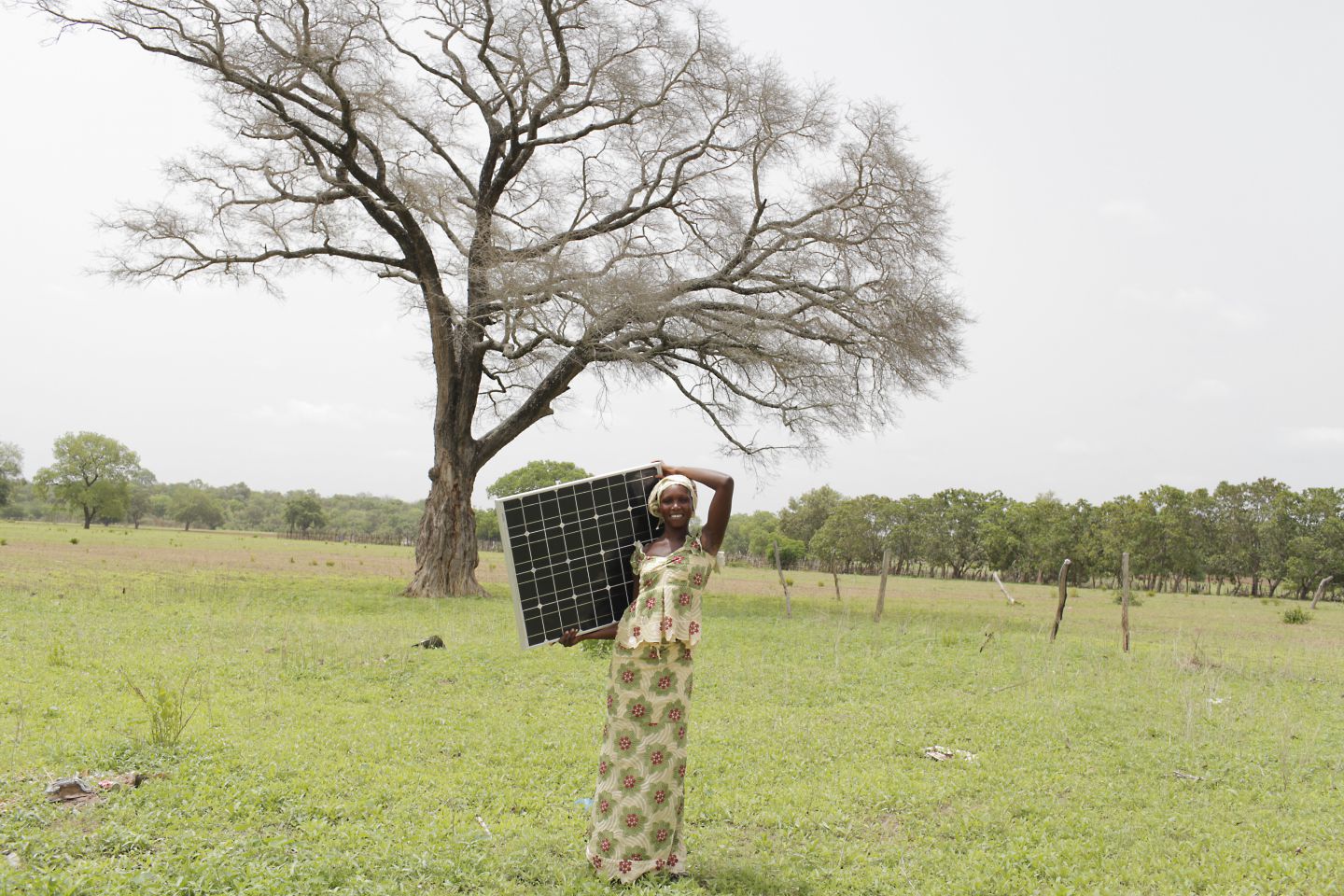More than twenty individuals gathered virtually to kick off ENERGIA and partners’ first Gender and Energy Innovation Facility Bootcamp. Over five days, NGOs, CBOs, social enterprises, financial institutions, consultants and research centers working at the nexus of gender and energy, explored how to drive change and develop innovative ideas to address persistent gender challenges in energy access.
The 2030 Agenda for Sustainable Development is an ambitious journey to create a world free of poverty, hunger, disease, disparities and climate injustice. However, increasing studies show that the world is significantly off track to achieve many of the sustainable development goals, including universal energy access and gender equality, the focus of ENERGIA’s work. To contribute towards reducing this action gap and accelerate the transition towards an equal and inclusive energy sector, ENERGIA and Hivos, together with ENDEV and MECS, have established the Gender and Energy Innovation Facility, aiming at promoting new approaches that deviate from the standard and business as usual actions. In an effort to respond to the guiding question “what can be done differently?”, a total of 17 pilot projects will be selected in three countries, namely Kenya, Tanzania and Nepal, and will receive financial support to develop, test and evaluate their proposals.
First Gender and Energy Innovation Facility Bootcamp: successes and lessons learned
Through a call of proposal (now closed) for initiatives in Kenya, we received 51 ideas, 20 of which were selected to participate in a virtual bootcamp. The event, which comprised an equal representation of women and men, represented a tremendous opportunity for all to discuss the challenges of thinking outside the box, including how to formulate assumptions and hypotheses, how to discern what is innovative from what is not, and how to test innovative approaches on the ground.
In this five-day online event, participants learned more about innovation and worked together to improve their proposals, with the support of innovation, energy and gender experts. The projects presented ranged from using organic residues to produce energy in the slums of Nairobi to improving the performance of one specific cookstove or working with indigenous communities on biogas programmes.
The process was challenged by the ongoing COVID-19 pandemic, which has forced the shift from physical to digital events and meetings. To overcome the virtual barriers and strengthen the collaboration, the sessions were interactive and diverse. Participants worked in small groups, which enhanced the opportunity to get to know each other, discuss ideas and share knowledge.
Pilots to be tested
After the bootcamp, participants further developed their innovative proposals, including recommendations from the experts, and submitted their final ones to the Facilities’ board. Six proposals were selected to proceed to the next phase: testing pilot projects. These initiatives will receive up to EUR 25,000 and have six months to a year to implement and test their ideas. After this period, the Facilities’ board will evaluate the outputs of the pilots and will select the ones that can start a scaling-up phase. The Facility will support these initiatives in resource mobilization for scaling up.
Among the selected projects to enter the testing phase is an initiative that will set up a “Modern Energy Cooking Hub”, using clean energy technologies to prepare healthy meals at affordable prices for communities and digital platforms for customer management in order to avoid physical contact as much as possible, in the light of the COVID-19 pandemic. Another organization will produce packaged biogas made from household and agricultural trash, in a community owned enterprise. A third initiative will train rural women to manufacture pico-solar systems.
ENERGIA and partners are looking forward to learning about these experiences. It is our hope that these innovative projects will contribute to reduce inequalities in the energy sector and will be an inspiration for future projects and programmes.
Second bootcamp
The next bootcamp will take place most likely in mid-January 2021 and will examine innovative projects to be implemented in Tanzania. In a webinar on Wednesday December 2 we launched the Call for Proposals for this second bootcamp and shared insights on how to develop innovative approaches. We are anxious to learn about the innovative ideas that are still out there and hope to receive quite a number of inspiring and out-of-the-box thinking initiatives in this second round.











Follow us on: